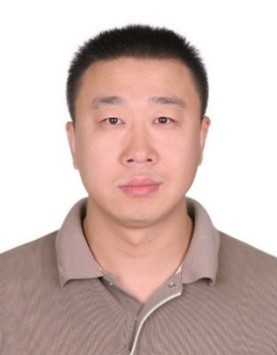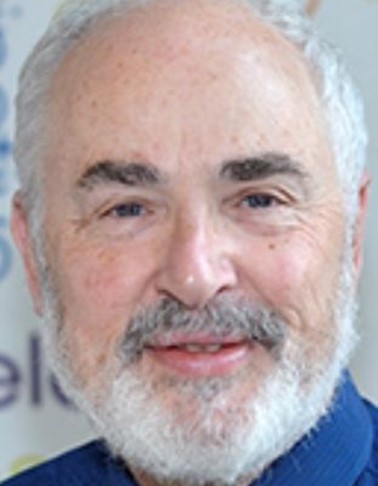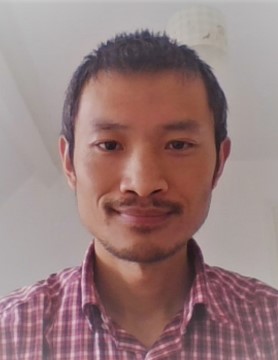2nd CCST Forum Workshop – Calcium Looping for CO2 Capture
10 April 2023, Monday
12:00-14:30 UK time; 19:00-21:30, Beijing Time
TEAMs: Join Meeting ID: 319 494 325 802 Passcode: 7a7XvA
Koushare: https://www.koushare.com/lives/room/446055

Chair: Hui Zhou, Tsinghua University
Co-chair: Changlei Qin, Chongqing University

Introduction of speakers
Dr Xin Guo
Presentation Title:
Multi-scale reaction mechanisms for calcium looping CO2 capture and the application in sorption enhanced hydrogen production
Personal introduction:
Xin Guo is a full professor at State Key Laboratory of Coal Combustion (SKLCC) at Huazhong University of Science and Technology, China. Her research interests are focused on development and utilization of low carbon energy, efficient and clean utilization of fossil fuels, and combustion pollutant control. She has already been responsible to finish more than 20 projects including National Natural Science Foundation Project, Nation Key Basic Research Project, etc. She has published over 100 academic papers in international journals and got two natural science awards from the Ministry of Education. She is the fellow of The Combustion Institute, has served as the chapter chair for the International Symposium on Combustion, and a project reviewer for the Chinese Natural Science Foundation and the European Research Council.
Dr Zhenshan Li
Presentation Title: First-principle-based microkinetic rate equation theory and multiscale modelling in calcium looping
Personal introduction:
Prof. Li’s research has a well-balanced emphasis on applications and fundamentals in the field of low carbon energy and CO2 capture. For application research, Prof. Li’s research group has focused on the development, demonstration and upscale of solid looping technology, aimed at solving the technology challenge and achieving the commercial application of novel technology. Prof. Li’s group is now focusing on the demonstration of the world’s largest chemical looping combustion unit (3~5MWth). Prof. Li is also a project partner of the CLEANKER project and the ultimate objective of advancing the integrated calcium-looping process for CO2 capture in cement plants. Prof. Li developed a first-principle-based microkinetic rate equation theory and multiscale modelling frame to calculate the heterogeneous reaction kinetics and its coupling with the transfer of mass, heat and flow in calcium looping. At the atomic scale, DFT is used to solve the Kohn-Sham equations and clarify the microscopic reaction mechanism and potential energy profile etc. The output results from DFT are calculated at 0 K, while the gas-solid reactions take place at high temperature, therefore, the transition state theory (TST) is used to calculate the collective behavior of many atoms at high temperature by computing the rotational, vibrational and translational partition functions. In order to describe the porous particle, the particle is assumed to be consist of many smaller nonporous grains and the empty spaces between the grains are pores. At reactor scale, the Computational Fluid Dynamics and Discrete Element Method (CFD-DEM) approach is used to couple with the reaction mechanism. A microfluidized bed thermogravimetric analysis (MFB-TGA) method was developed to overcome the long-standing challenges of studying the fast carbonation/calcination kinetics of fluidizing CaO/CaCO3 particles and is used to validate the developed models. The developed theory and method is adopted to understand the reaction mechanism and analyze the reaction kinetics in calcium looping. This theory bridges the gap between atom-scale quantum chemistry calculations with particle-scale heterogeneous kinetics and provides a fundamental theoretical framework for heterogeneous reactions in many fields.
research group has focused on the development, demonstration and upscale of solid looping technology, aimed at solving the technology challenge and achieving the commercial application of novel technology. Prof. Li’s group is now focusing on the demonstration of the world’s largest chemical looping combustion unit (3~5MWth). Prof. Li is also a project partner of the CLEANKER project and the ultimate objective of advancing the integrated calcium-looping process for CO2 capture in cement plants. Prof. Li developed a first-principle-based microkinetic rate equation theory and multiscale modelling frame to calculate the heterogeneous reaction kinetics and its coupling with the transfer of mass, heat and flow in calcium looping. At the atomic scale, DFT is used to solve the Kohn-Sham equations and clarify the microscopic reaction mechanism and potential energy profile etc. The output results from DFT are calculated at 0 K, while the gas-solid reactions take place at high temperature, therefore, the transition state theory (TST) is used to calculate the collective behavior of many atoms at high temperature by computing the rotational, vibrational and translational partition functions. In order to describe the porous particle, the particle is assumed to be consist of many smaller nonporous grains and the empty spaces between the grains are pores. At reactor scale, the Computational Fluid Dynamics and Discrete Element Method (CFD-DEM) approach is used to couple with the reaction mechanism. A microfluidized bed thermogravimetric analysis (MFB-TGA) method was developed to overcome the long-standing challenges of studying the fast carbonation/calcination kinetics of fluidizing CaO/CaCO3 particles and is used to validate the developed models. The developed theory and method is adopted to understand the reaction mechanism and analyze the reaction kinetics in calcium looping. This theory bridges the gap between atom-scale quantum chemistry calculations with particle-scale heterogeneous kinetics and provides a fundamental theoretical framework for heterogeneous reactions in many fields.
Dr Ben Anthony
Presentation Title:
Ca Looping - Current Status and Perspectives
Personal introduction:
Ben Anthony (current citations, 27880, H index 79) was a Professor in Energy Process Systems at Cranfield University, and previously a senior research scientist with CanmetENERGY in Canada, where he headed the Gasification and Fluidized Bed Combustion Group. His interests include thermal energy processes that can offer pure CO2 streams for sequestration, and gasification technology, both in its high-pressure and atmospheric forms, and coal and waste combustion in FBC. Dr. Anthony is the author of 310+ journal papers on various aspects of combustion and gasification, along with a similar number of conference papers, 19 book chapters, and he is the co-editor of the first book on Pressurized Fluidized Beds and a book with Dr Paul Fennel on Ca and Chemical Looping. Dr. Anthony’s current R&D pursuits are strongly focused on calcium and chemical looping cycles, oxy-fired CFBC technology and pressurized, entrained-flow gasification and lime-based chemistry. He is an adjunct Professor with the Chemical and Biological Engineering Department at the University of Ottawa, and a guest Professor with Southeast University in Nanjing, China. He is also a Fellow of the Institution of Chemical Engineers, the Royal Society of Chemistry and the Institute of Energy and a Chartered Engineer.
Dr Chunfei Wu
Presentation Title:
Calcium looping and integrated CO2 utilization
Personal introduction:
Dr Chunfei Wu is a Reader at the School of Chemistry and Chemical Engineering and the Chemical Engineering Programme Lead at QUB. He has published >220 peer-reviewed journal papers with >10,000 citations (H index of 61, Google Scholar) in the areas of catalytic thermo-chemical conversion of wastes and CO2 capture. He is the PI of a EU RISE international exchange programme in relation to biomass gasification and carbon capture and utilization (Ref; EU823745, €864,400) (2019-2022), coordinating 15 research groups. Dr Wu is Co-I of a few EU project. He has also been involved in several EPSRC, Innovate UK, Royal Society and other EU projects. He is a Charted Scientist and a Member of the Royal Society of Chemistry. Dr Initiated the development of Carbon Capture Science & Technology (CCST), a Gold Open Access IChemE journal published by Elsevier. He is currently the Editor-in-Chief of CCST. He also serves as Managing Editor of Biomass and Bioenergy, a well-known journal in the biomass research area.
About IACC
IACC aims to promote carbon capture research and technology development and deployment, thus contributing to reducing CO2 emissions and mitigating climate changes for a better living environment. To achieve this aim, IACC will organise carbon capture conferences, workshops and seminars; promote collaborations between academics, industries and other carbon capture organisations; support early career researchers to carry out cutting-edge research; increase public awareness of the needs of carbon capture and encourage the young generation to consider low-carbon-emissions technologies and behaviour; and contribute to international communication for carbon capture development.
Website: www.iaccr.org
